Security Breach Hits Iran's Largest Food Delivery App

An Iranian hacking group, called IR Leaks, has claimed responsibility for a cyberattack on Snapp Food, the country's largest food delivery app.

An Iranian hacking group, called IR Leaks, has claimed responsibility for a cyberattack on Snapp Food, the country's largest food delivery app.
The hackers boast access to the personal details of over 20 million users, exposing a vast trove of sensitive information.
The compromised data, reportedly up for sale at $30,000, includes usernames, passwords, email addresses, full names, and mobile numbers. Furthermore, the hackers claim to possess detailed information on over 51 million user addresses, complete with GPS coordinates and phone numbers.
The hackers have also released a sample of the data to validate their claims.
In an exclusive interview with the Digiato website, the hackers emphasized their decision not to inform Snapp Food's management before going public with the hack. Snapp Food, acknowledging the breach, issued a press release stating, "Initially, in collaboration with the Cyber Police, we are identifying and eliminating the source of contamination caused by the actions of this hacking group."
This is not the first time the hacking group has targeted a prominent Iranian service. In September, they reported a breach on the ride-hailing service Tapsi, affecting more than 33 million users. The hackers claimed to have engaged in negotiations with Tapsi's management for two weeks before making the breach public. However, the company refused to meet the hackers' demand of $35,000.
The recurrent nature of such incidents in Iran highlights the absence of stringent laws and penalties for negligence in safeguarding private information. The lack of user rights, including the inability to request the deletion of personal data, underscores the urgency for regulatory reforms to address the growing threat of information leaks in the country.
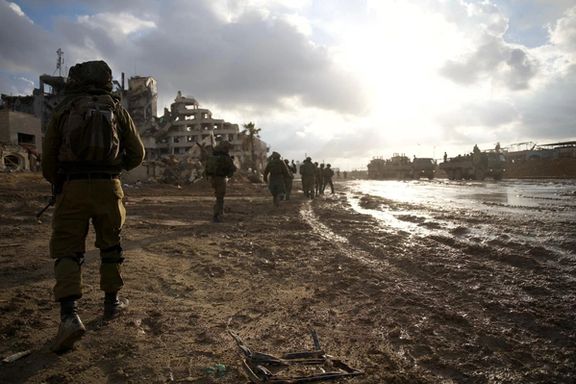
Iran’s recent decision to speed up its enrichment of uranium, and attacks by Tehran’s proxies across the region, have created deep concerns among Iranians.
Etemad Online in Tehran says tensions between Tehran and Washington have escalated following the UN nuclear watchdog, IAEA’s report about Iran’s nuclear escalation. Observers in Tehran have pointed out that the situation in the region could go dangerously out of control if there is no agreement between Tehran and Washington.
Meanwhile, according to the Wall Street Journal, Tehran's attempts to help its regional allies and proxy groups to attack Israel and US forces in the region has been a key factor in the escalation of tensions between Tehran and Washington.
Under the 2015 nuclear deal, the JCPOA, Iran’s uranium enrichment was greatly curtailed but after the United States withdrew from the accord, Tehran began to increase both the quantity and quality of its enrichment.
The boost in the production of weapons-grade uranium may also pave the way for Iran's nuclear break-away, reports say. Now, Iran has simply returned to its production level as it has been at the beginning of 2023, which means that any possible agreement between Tehran and Washington that was made since then has failed.
Meanwhile, observers in both Tehran and Washington suggest that despite these developments, Washington may still be prepared to resume the nuclear talks with Tehran although many politicians in Washington demand a tougher stance against Tehran. The resumption of the talks were initially planned for October, but the Hamas attack on Israel and the ensuing war stopped the process.
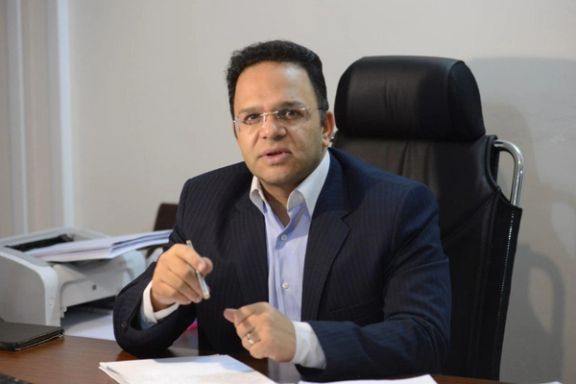
Iranian foreign policy analyst Rahman Ghahramanpour told Didban Iran website that Iran's involvement in attacks on navigation in the Red Sea is likely to lead to a confrontation in the long-run. However, even at the current level of escalation, the situation is likely to adversely affect Iran's relations with other countries such as China, Russia, and some of the regional countries that still maintain close ties with Tehran.
Ghahremanpour added that the attacks by Iran's proxies and allies on civilian shipping in the Red Sea will badly damaged its international image and foreign relations.
Meanwhile, Iran's former diplomat in New York Kourosh Ahmadi told Entekhab News website that "With no agreement between Tehran and Washington, the situation which has been under control during the past months since the start of the war in Israel, could dangerously go out of control.
Ahmadi added that it is not unlikely that Israel would plan an attack on Iran and Lebanese Hezbollah under such circumstances. However, Ahmadi quoted some unnamed Iranian officials as saying that the United States would not get involved in any new adventurism in an election year. According to Ahmadi, while such a presumption could be correct from some perspectives, it would remain true only if the opposing party could not accuse the incumbent government of weakness and indecisiveness in the face of foreign enemies. If the delicate balance were to be disrupted in such a case, the government might decide that foreign adventurism is its only way to preserve its status in the US domestic political scene.
Ahmadi also argued that events such as the recent US attack on the positions of Iranian proxy groups in Iraq could ruin the balance and the unwritten agreement between Tehran and Washington which was supposed to come out of meetings in Oman. He failed to mention that the US strikes were limited retaliation against more than 100 attacks by Iran’s proxies on US bases in Iraq and Syria.
However, Ahmadi reiterated that : "If there is no agreement between Iran and the United States, the situation that seemed to be under control during the past six months, will go out of control and a dangerous situation could take shape."
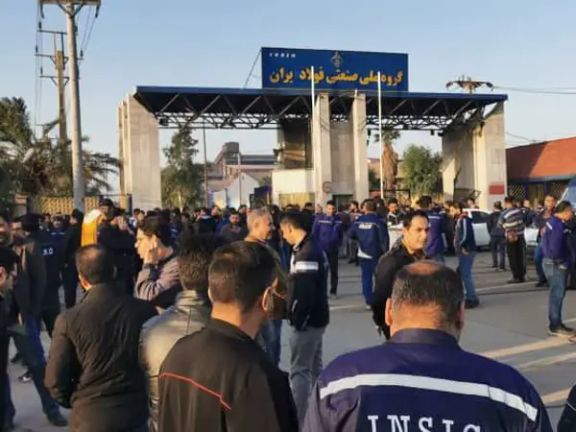
Entering its eighth consecutive day, the strike by Ahvaz National Steel Group workers has escalated as they took control of all entry and exit points of the company.
The Free Union of Iranian Workers Telegram channel reported a gathering and protest march by the workers on Saturday morning.
Videos from the eighth day of the strike depict protesting workers chanting defiant slogans refusing "to accept humiliation." In one video, a worker from Ahvaz National Steel Group declared, "Protests will persist until our demands are addressed."
The discontent in Ahvaz stems from the recent termination of 21 employees and the failure to implement job classification plans. Workers engaged with representatives from the Khuzestan province's General Department of Labor, the National Bank, and various government agencies on Thursday, as reported by the Free Union of Iranian Workers.
A published list of demands for the meeting included the "Removal of the corrupt CEO, eliminating National Bank ownership, and granting workers a role in company management." However, no outcomes have been disclosed yet. The workers also released a statement ahead of the scheduled meeting, affirming their intent to continue the strike as long as "authorities' threats and inaction persist."
On the second day of protests, an additional 17 employees faced work restrictions. The Iranian National Steel Industrial Group, once controlled by Amir Mansour Aria's investment firm, has transitioned to private ownership following legal proceedings and Aria's execution for embezzlement.
In recent months, workers across various industries, guild members, and retirees have initiated protests against the prevailing economic conditions. Unfortunately, these demonstrations have often been met with security force crackdowns.
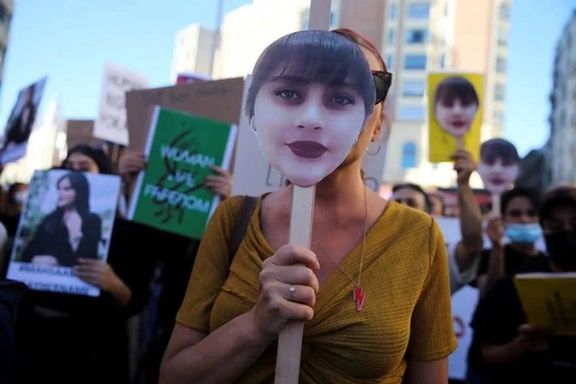
Here's what we do and don't know about Generation Z in Iran. We know that it has distanced itself from the anti-imperialist and Islamist ideas of the 1979 Revolution.
However, we do not know what Generation exactly wants for its future and what are its objectives in life.
While Gen. Z played a central role in the Mahsa revolution, we lack insights into their varying social and cultural policy perspectives, their views of the world around them, and their vision for their future in Iran. We're unaware of the plans they have for their future (aside from mass migration to the West) and how they envision that future. This knowledge gap exists due to the absence of scientific and independent attitude surveys in Iran.
However, in the absence of sufficient information about the attitudes and positions of young people, we can turn to their popular figures and the messages they convey. The government's treatment of these figures also reflects the attitude of their supporters toward the Islamist regime.
To gauge the attitudes of young people through these popular figures, we can focus on four very different personalities among the popular performers whose music has captured the attention of Generation Z: Tomaj Salehi and Amir Tataloo (currently imprisoned for their work), Sasy Mankan (in exile after his arrest in 2010 and the subsequent ban on his activities), and Mehdi Yarrahi (arrested in 2023 for posting the song "Rusarito Dar Biyar: Get Rid of Your Scarf" and currently released on bail).
All four singers have political backgrounds, ranging from involvement in the election campaigns of presidential candidates (Sasy for Mehdi Karroubi and Tataloo for Raisi) to outright opposition to the regime (Yarrahi and Toomaj). Three of them have operated underground since the beginning of their careers, unable to officially distribute their works in Iran. Mehdi Yarrahi joined the underground music scene midway through his career. This illustrates that the government does not want to hear their voices, nor does it want the youth to hear them.
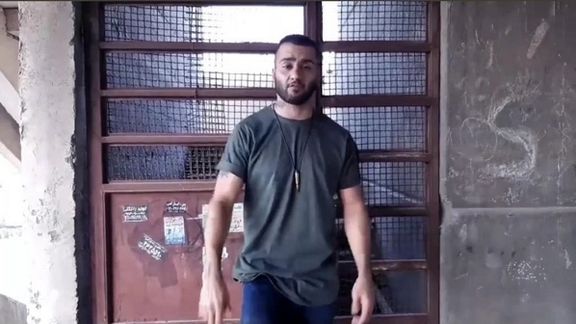
"Look for A Rat Hole" and "Omen": Aggressive regime change
The works of Toomaj Salehi, aged 33, echo the sentiments of a generation of young Iranians who ardently and persistently seek the downfall of the regime. Toomaj's music found its way into the cars of people taking to the streets during the 2022 protests. His arrest was a direct result of his outspoken views against the current government. His supporters squarely blame the Islamist regime for the suffering and discrimination in Iran and vehemently call for the overthrow of the clerical establishment. Toomaj articulates the necessity of rebellion against the country's occupiers. In his song "Omen," he portrays the fate of regime officials after their overthrow, while in "Look for A Rat Hole," he envisions their fate during the overthrow.

"Get Rid of Your Scarf ": the transition from reformism to soft regime change
Mehdi Yarrahi (42 years old) comes from a religious background, but he has not remained silent against discrimination, poverty, and exploitation by the religious government. He has been banned from publishing his singles for many years because he supported protesters against the policies of the Islamic Republic. In 2017, Yarrahi was banned from working and filming for six months due to wearing the uniform of protesting workers, who were arrested in 2018, during a concert and releasing the critical music video “Pareh Sang” (Rock). After dedicating one of his songs called "Farewell After Leaving" to the victims of the November 2019 protests and his defying statements in concerts in Ahvaz and Karaj, his activities were banned. Yarrahi fully supported the nationwide protests of 2022 with works such as "Sorud-e Zan" (Woman Anthem) and "Sorud-e Zendegi" (Life Anthem) and his epic works were sung by protesters in the streets. He has become a kind of reformist who supports the civil resistance to end the Islamist regime, and unlike Toomaj, does not want to bring about the conditions for the "Look for A Rat Hole” for IRGC and Basij members.

"Gentleman": laying the groundwork for socio-cultural change
Sasan Heydari, with the stage name Sasy Mankan (35 years old), is popular among elementary and high school students in Iran. His songs titled Gentleman, Doctor, Tehran-Tokyo, and Leila’s Brothers were welcomed by tens of millions in Iran. Sasy, who emigrated to the United States after his arrest and work restrictions, has been very successful in producing popular music while criticizing and exposing the hypocrisy of the religious regime in Iran. Those young Iranians who don't want the totalitarian role of the government, religious education and Islamization in their lives love Sasy's works. Sasy does not take a political stance in his music and does not defend a certain class. He even shuns political activism, but his works are popular with those who oppose the lifestyle of the ruling class imposed on others. The “grey stratum” (people who are silent while being against the regime) welcomes his works the most.

"Having Fun" and "Hell": Rebellion against all norms, including dignity and fighting
Amir Hossein Maqsoodlou, known by his stage name Tataloo and aged 36, attempted to carve a niche for himself in the music scene of the Islamic Republic by aligning with political factions, singing propaganda songs, and lauding Khamenei. However, these efforts yielded little interest from the regime and failed to connect with the youth as intended. Consequently, Tataloo faced government arrest on three occasions but persisted in his work by relocating first to Dubai and then to Istanbul. Along the way, he avoided directly confronting the regime and took the path of carelessness fun and even promoting obscenity (Lady Waziri). His literature has come closer to street literature, which Islamists and leftists call vulgar. For young people, this is a kind of rebellion against the status quo and they welcome it. He is the promoter of hugs, kisses, heaven, sin, fear, and forbidden (Forbidden) beside profanities in a frozen world (Hell). Like tens of millions of young Iranians, he asks the surrounding society to “let him be himself.” He reflects on the feelings of tiredness, burning, impatience, imprisonment, and depression of Iranian youth in his songs. Confusion and lack of responsibility are reflected in his lyrics too.
Despite their diverse social and political stances, all four singers and their tens of millions of fans share a common sentiment: that the Islamist regime hinders their ability to live freely, revitalize themselves, and express their true selves. While the generations that came of age in the 1980s, 1990s, and 2000s, represented by artists like Sasy, Tataloo, and Yarrahi, once believed that dealing with the Islamist regime through certain reforms was feasible, today's Generation Z has adopted different strategies and perspectives. The Iranian Generation Z is determined to extricate the Islamist government from their lives, whether through street protests or simply by distancing themselves from its influence in their mental world, including through the use of cannabis.
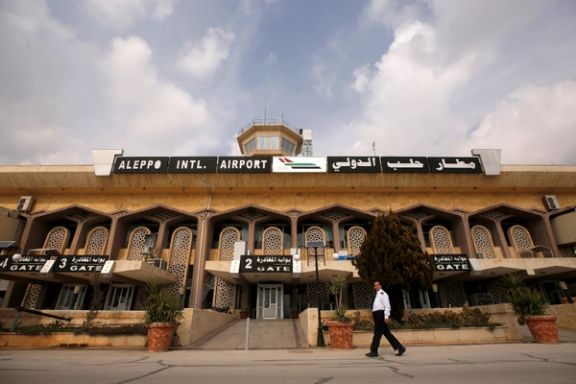
Israel targeted Syria's Aleppo with an air strike on Saturday, which caused some material damage there, the Syrian defense ministry said in a statement.
The Syrian Observatory for Human Rights (SOHR) reported that Al-Nairab Military Airport near Aleppo and targets in its vicinity were also attacked.
SOHR stated that there are warehouses and centers belonging to Iranian militias in the areas hit by missiles launched from warplanes.
The airports themselves did not sustain damage, SOHR said.
Six explosions were heard in the Nairab airport area, while one missile landed in the area of Aleppo International Airport.
Reuters reported that the Israeli military declined to comment. While Israel has launched hundreds of air strikes against Iran-affiliated forces in Syria in the past decade, it usually refuses to confirm or deny its involvement.
Most of these attacks have targeted weapons depots belonging to the Iranian military network in Syria, and arms transfers destined for Iran-backed forces, particularly the Lebanese Hezbollah. Israel has vowed not to allow more entrenchment by Iranian forces in Syria.
The latest strikes seem to be related to heightened tensions in the region amid the Israeli military operation against Hamas.
On December 25, a suspected Israeli air strike killed the top Iranian IRGC general, Razi Mousavi, at his residence near Damascus. Iran has vowed revenge for the targeted killing, similar to a US air strike that killed Iran’s Quds Force commander Qasem Soleimani in January 2020 in Baghdad.
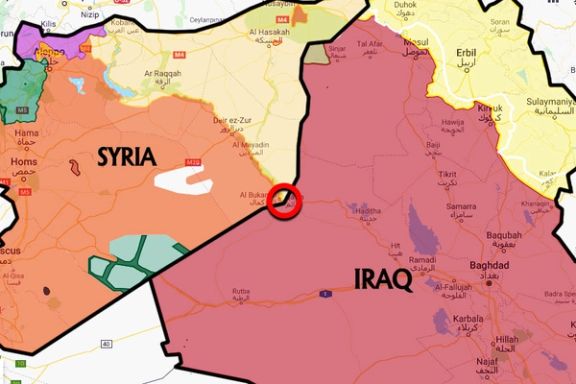
Iraqi officials have confirmed earlier reports that unidentified warplanes attacked Iran-aligned militia targets in Syria, near the Iraqi border early Friday.
The attack resulted in four confirmed casualties, as stated by a local commander from Iraq's Popular Mobilization Forces (PMF). A Syrian war monitor reported that as many as 19 were killed, including four members of the Lebanese Hezbollah.
Iran International reported on the attack on Friday, but there was no official confirmation at the time.
While the commander denied harm to groups' fighters near the Syrian border, the strikes specifically targeted an eight-truck convoy, leading to the destruction of at least four trucks and three buildings affiliated with an Iranian-backed militia group, according to sources with connections to Syrian border officials.
Iran-aligned forces, including Hezbollah, hold influence across significant areas in eastern, southern, and northwestern Syria, as well as in suburbs surrounding the capital. Suspicions point toward Israel, known for its historical targeting of Iran-linked sites, although the US denies any involvement, emphasizing the absence of defensive strikes overnight.
Despite its reluctance to directly get involved in the Gaza war, Iran persists in utilizing proxy forces across Syria, Lebanon, and Yemen to target both US and international interests, with a record of over 100 drone and rocket attacks. Criticism is mounting against President Joe Biden for perceived leniency toward Iran, prompting calls for a more robust approach from former US officials and Republican lawmakers.
Iran denies any role in the attacks by militants, asserting that planning and execution are independently carried out by its affiliated armed groups. Despite escalating rhetoric, Iran, facing economic challenges, exercises caution to avoid significant losses.